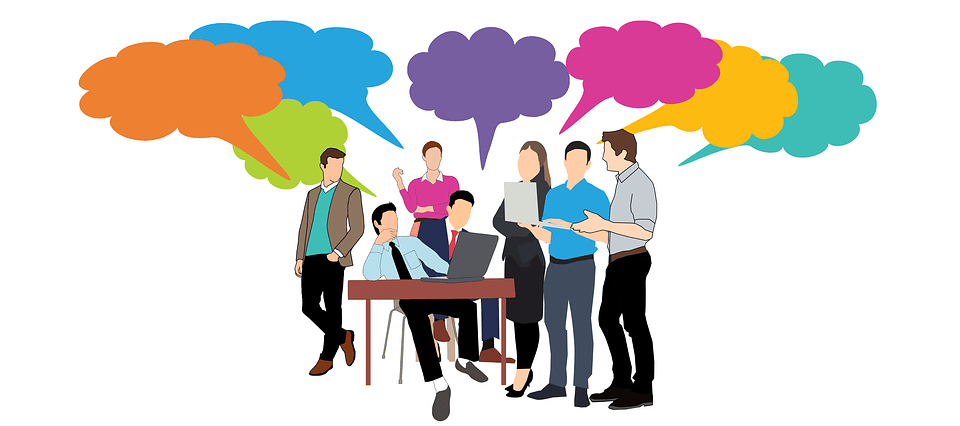
Group psychotherapy
Group psychotherapy is based on psychological problems that affect relationships with other people and manifest themselves in these relationships.
Many difficulties can be experienced in group therapy. Group therapy provides a therapeutic environment which enhances your experience, getting to know ourselves, other people, and our relationships with others. You can click here for more information.
It creates conditions to become aware of our contact patterns with people and how we build relationships with them. It allows learning about habitual ways of thinking, experiencing, behaving, and the consequences resulting from them.
Many online platforms offers group psychotherapy in an integrated interpersonal, existential, and psychodynamic approach. They combine the interpersonal perspective with the perspective of the group as a whole.
Group psychotherapy is a good form of help for people who:
- experience difficulties in establishing and maintaining an intimate relationship;
- unable to establish and maintain friendships, or have difficulties with it;
- experience emptiness and a sense of meaningless life;
- they always feel tension and anxiety.
And also for those who complain of the following relationship problems with people and groups:
- they are shy and lonely.
- they are overly impulsive, get emotional too quickly, and go into action;
- they avoid confrontation; they do not take up competition;
- have problems recognizing, experiencing, expressing feelings;
- do not understand the behavior, reactions, and feelings of other people, their relatives;
- they are aggressive in a passive way;
- they are afraid of their anger and the anger of others;
- they are afraid of closeness;
- they cannot love;
- they are unable to accept love, tenderness, affection, friendship, politeness;
- they cannot enjoy themselves, play or behave spontaneously;
- they think of themselves (or others say of them) that they are boring, unattractive;
- they do not fulfill themselves at work;
For people with problems in relationships with people, group psychotherapy seems to be the best therapy. However, if these problems are particularly severe, e.g., when someone has never been in a close relationship, they most often experience stigma and rejection – several sessions preparing for participation in a therapeutic group may be needed, or prior individual psychotherapy (or parallel-group and individual psychotherapy). The consulting therapist decides about the form of help.

Group Psychotherapy
Objectives
The most common goal of group psychotherapy is to bring about such changes in our behavior, thinking, and experiencing what will allow us to build more satisfying relationships with other people, including satisfying close relationships.
- In a psychotherapeutic group, it is possible, in a safe environment, to experience and understand the causes of suffering and frustration that arise in contact with others, which can start a process of significant change.
- The group creates conditions enabling the intimate sharing of experiences and feelings with other participants in an atmosphere of trust and security.
- Group psychotherapy aims to teach you how to develop distortion-free relationships with others. Thanks to the group’s feedback and self-reflection and self-observation, group members become aware of their behavior in contact with people.
- Group psychotherapy allows us to learn more about our dark sides, limitations, and maladaptive behaviors that trigger unwanted reactions in our intimate environment. Thanks to the reactions of other participants, we can see and feel the influence of our behavior on others’ feelings, on the attitude of others towards us, and our well-being.
- In the psychotherapeutic group, thoughts, feelings, and opinions are expressed that influence our opinion about ourselves. This unique experience allows you to become aware of your responsibility and agency in relationships with other people. By discovering responsibility for how other people perceive us, we discover our ability to change these relationships.
The role of the therapist
A group therapist’s important function is to observe, interpret, specify, and explain the processes taking place in the group. Creating a good, safe environment for change – one where you can experience, express, understand your feelings and desires. The therapist sets boundaries, rules, norms and sets the pace of work. It encourages group participants to reveal and deal with problematic areas of life. It supports showing affection, honesty, and acceptance.
In intensive short-term therapeutic groups, the group therapist is slightly more active than in long-term therapy.
Thanks for reading.






